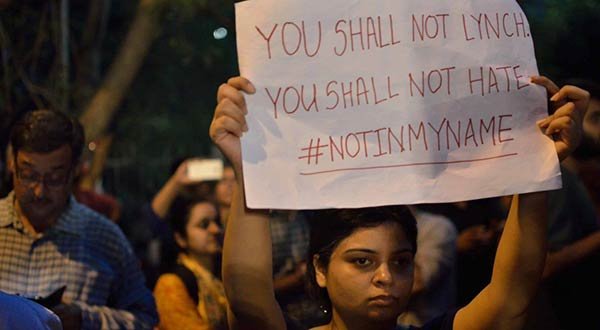To me, whatever may be the ideological orientation of an organisation, the language and appeal of inclusivity should be welcomed. For, the pathological criticism of any organisation actually strengthens the same.
I don’t find any significant shift in the perspective of RSS so far as Muslims are concerned. In the past and even now, the very politics of Hindutva is sustaining while painting Muslims as un-Indian entity. The liability has always been thrust upon the Muslims to prove themselves otherwise. For the Hindu right wing, a Muslim is true Indian if he/she subscribes to their idea of India. Mohan Bhagwat did not explain ‘what kind of Muslims’ welcomed in his inclusive Hindu Rashtra because the question was already settled in 2002 with the establishment of Muslim Rashtriya Manch. It is the RSS that understands Muslims in a far better manner than the Muslims themselves. As a result, they are successfully able to dominate and change even the Muslim political discourse in India.
Ironically, RSS wants to shape India as Hindu Rashtra, a theological temptation and also exhibits commitment to the Constitution which categorically denies such a possibility. The irony is not without reason. The agenda of RSS is to propose and propagate a ‘new idea of secularism’ that may also treat all religions equally. But Hindutva will be treated as “first among equals” and thus will act like Prime Ministerial religion.
Why RSS is articulating the idea of inclusive Hindu Rashtra with such flamboyantism now? Reasons could be many. First, RSS wants to distinguish itself from its older variant of Hindutva which was articulated in aggressive vernacular idioms. Now the project of Hindutva is pan-Indian, urban and to find pace with digitally-enabled, technocratic middle-classes of India from North to South India.
Second, the inclusive avataar of the RSS is part of the RSS’ project to transform its image from right wing-conservative-fringe organisation to a modern-progressive-mainstream organisation.
Third, RSS wants to confidently put forward its hegemonic and imperial framework for which the ground has already been prepared by the organisation’s vast network, self-styled intellectuals, think tanks, journalists and most particularly the present ruling regime.
Fourth, the rhetoric of inclusive RSS is to dislodge the criticism of opposition parties, civil society and left-liberal intellectuals and emerge as more acceptable organisation in India’s public sphere. It wants to converse in a language that is more accessible and acceptable to the majority.
Fifth, RSS wants to launch a foundational attack on the very notion of history, memory and secularity of India while supporting the cause of minorities and other marginalised groups living in India at the generosity of the majoritarian whole.
Sixth, RSS wants to adjust itself in the fast-changing Anglophone cultural system of the world.
Seventh, most importantly, BJP is standing on the shaking ground in 2019 elections. And thus the master right-wing body has to keep its window open for other parties to negotiate its “authentic and authenticating aspiration of new-India”.
[The writer is Associate Professor and Head, Department of Political Science, Maulana Azad National Urdu University (MANUU), Hyderabad]


